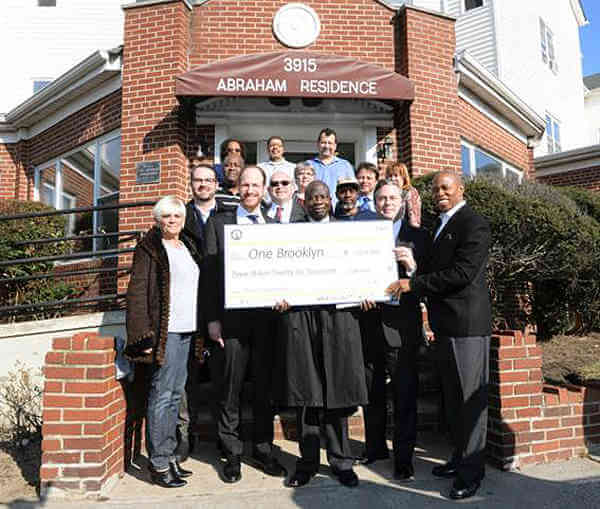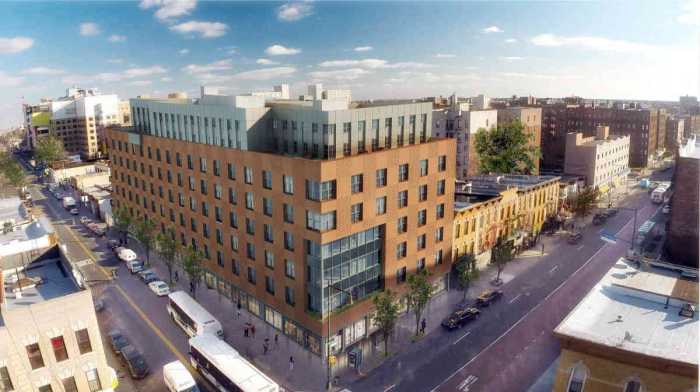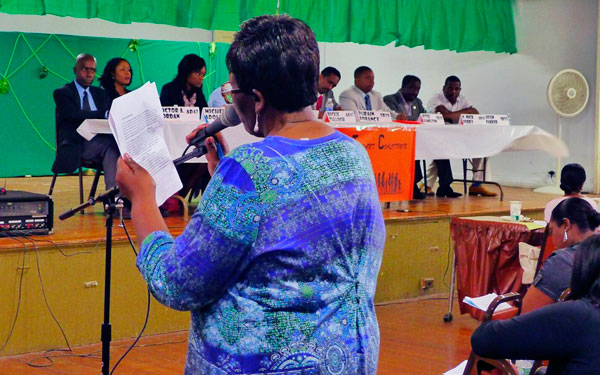Brooklyn Assemblywoman Diana C. Richardson has announced her advocacy for the passage of legislation that strengthens rent protections and combats unfair housing practices to increase access to affordable housing for all New Yorkers.
“The lack of safe, affordable housing in New York City has reached a crisis point, stretching tenants’ finances and preventing hardworking New Yorkers from getting ahead,” said Richardson, who represents the 43rd Assembly District in Brooklyn.
“This legislation empowers tenants and helps fight back against the unfair and often illegal practices that some landlords use to raise rents,” added the daughter of St. Martin and Aruban immigrants. “We must do everything we can to ensure families aren’t forced out of their homes and onto the streets.”
Richardson said the affordability crisis, driven by rising costs of living, rampant deregulation and, in some cases, predatory landlord tactics, has worsened, despite state and municipal efforts to address the issue.
In New York City, she said, more than 170,000 rent-stabilized apartments have been deregulated since 2007, “leaving far too many families with no place to go.”
From 2006 to 2016, Richardson said, the number of New Yorkers in homeless shelters nearly doubled, rising by an astonishing 87 percent.
“The homelessness crisis and affordable housing crisis go hand in hand, and we need to do something before it gets even worse,” she said.
In order to protect tenants against predatory landlords, the Assembly passed the Tenant Protection Act of 2018, which increases penalties for landlords who try to force out rent-regulated tenants by expanding the definition of felony harassment and creating a misdemeanor harassment charge (A.7992-A).
Under current law, a landlord must cause a tenant physical injury to meet the standard for felony harassment.
In order to remove financial incentives that reward landlords who force out rent-regulated tenants, Richardson said she helped pass a bill that eliminates vacancy decontrol provisions, which allow apartments with a legal maximum rent in excess of $2,733 that become vacant to be removed from the protections of the rent regulation laws (A.433).
Additionally, it would allow certain units that were deregulated pursuant to vacancy decontrol to become re-regulated.
Richardson said the legislative package also includes a measure that eliminates the 20 percent rent increase — known as a vacancy bonus — which landlords can charge when the rent of a rent-stabilized apartment rises above $2,700 a month and becomes vacant (A.9815).
“This critical measure removes an incentive for landlords to force out rent-regulated tenants to increase profits and helps slow the pace of deregulation,” Richardson said.
“Forcing out rent-regulated tenants is far too common because of the potential benefit to an owner’s bottom line,” she added. “That’s why we must eliminate incentives that reward landlords for their predatory practices and ensure that this type of harassment doesn’t go unpunished.”
The Assembly legislative package also includes a bill that reforms the regulatory framework for the approval of rent increases for rent-regulated tenants due to major capital improvements (MCIs) (A.8886-A).
Richardson said the measure would require MCI surcharge fees, which under current law can be recovered over eight or nine years – depending on the number of units – to cease once the cost of the improvement is recouped by the landlord.
It also bars landlords from charging tenants for improvements funded through the New York State Energy Research and Development Authority (NYSERDA).
Richardson said another important measure prohibits increasing preferential rent to the legally allowed rate when a lease is renewed. Under the legislation, such increases could only take place upon vacancy (A.6285).
Richardson said additional legislation would: Modify maximum rent increase guidelines for rent-controlled apartments to ensure that they don’t outpace the rents of rent-stabilized apartments (A.268); standardize the rental adjustment landlords can charge tenants for individual apartment improvements and requires them to provide documentation on how the increase was determined (A.1628); and require landlords to make reasonable efforts to re-rent an apartment at a fair market value after it’s been vacated early by a tenant (A.6967).




















